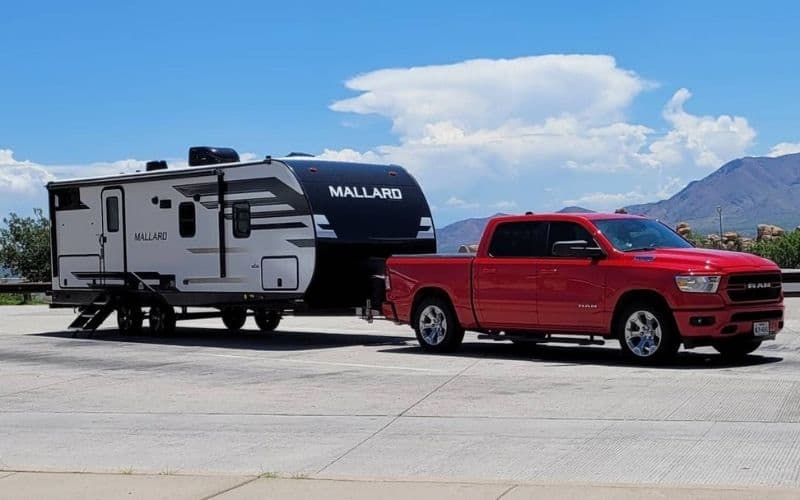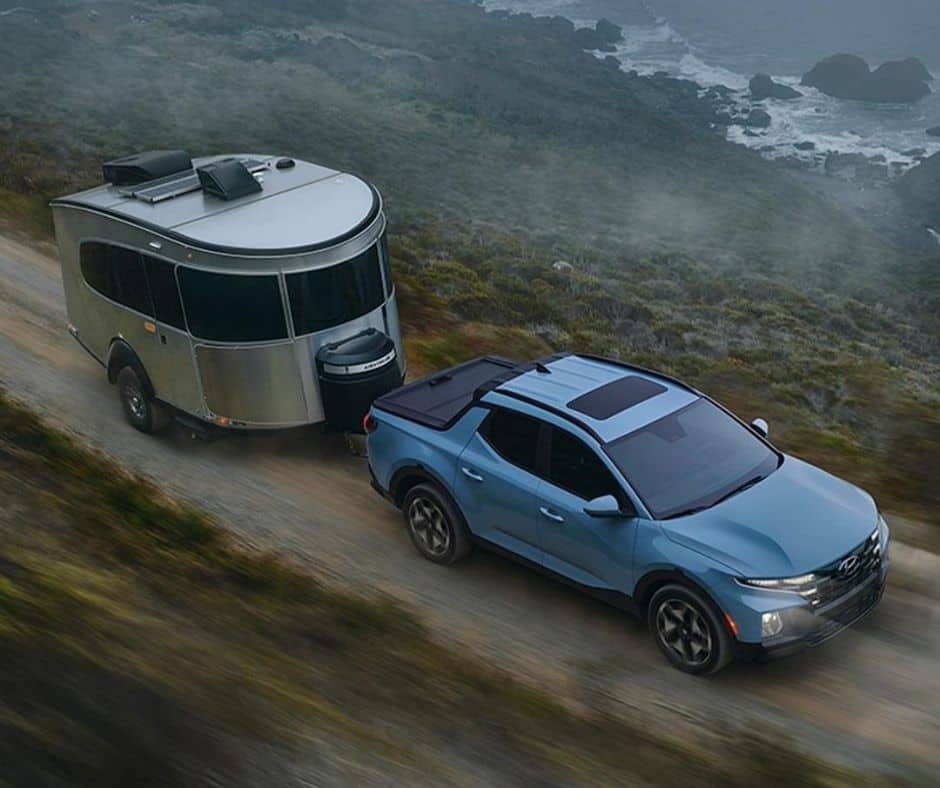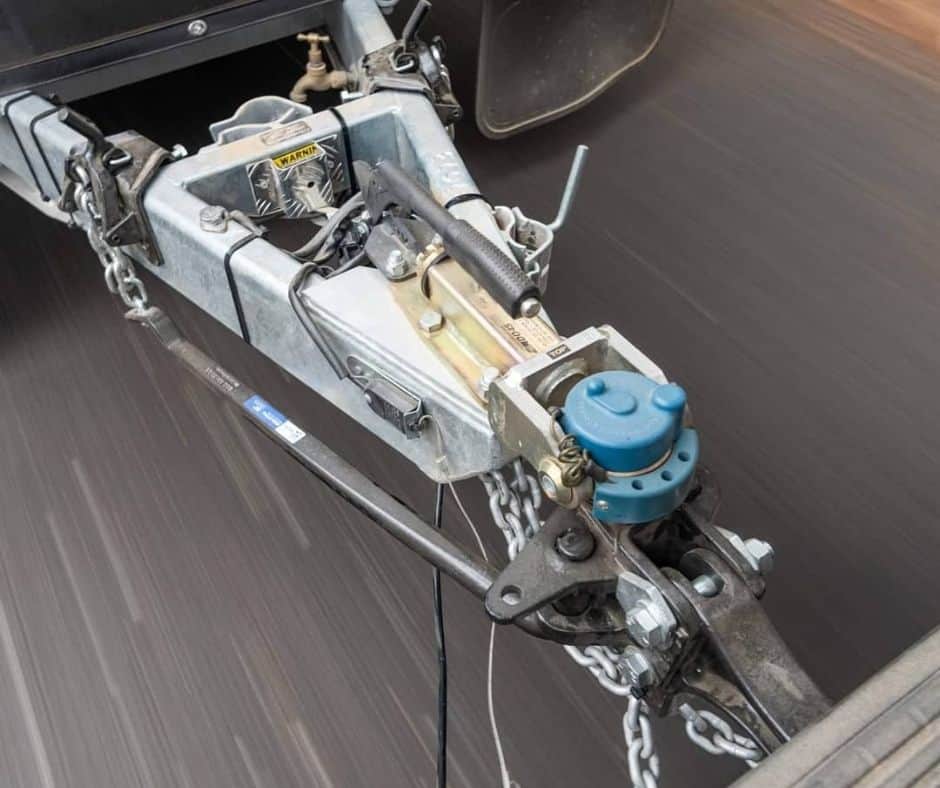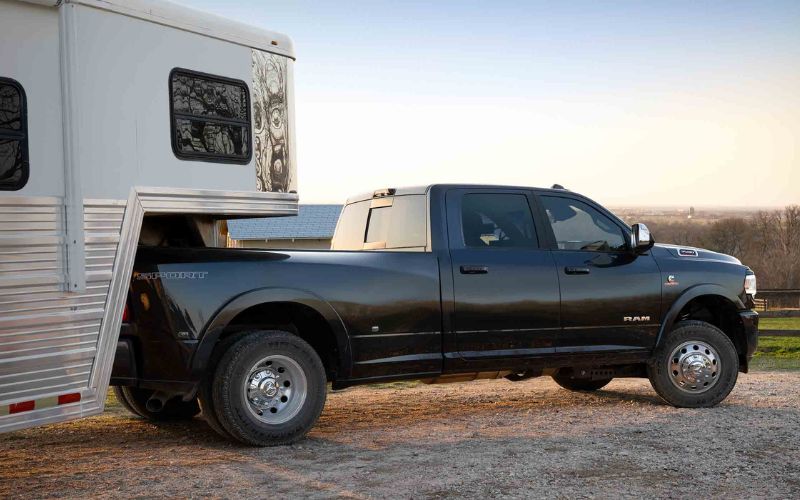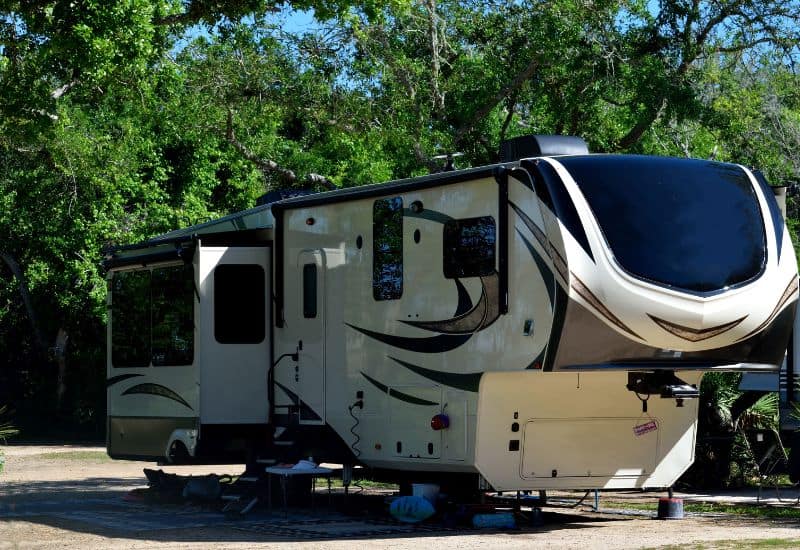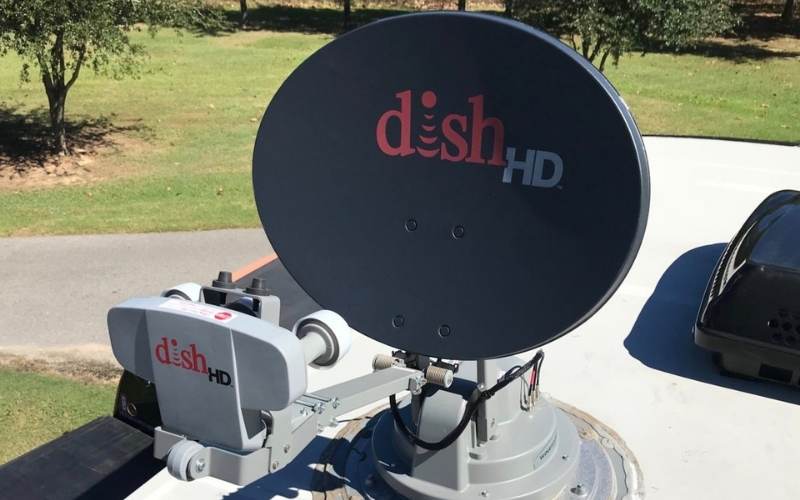The general rule of thumb is that you can only safely tow roughly 80% of your vehicle’s rated maximum towing capacity. With a large one-ton truck this usually isn’t an issue.
Though a lot of half-ton pickup trucks, light-duty pickup trucks, and SUV owners often find themselves wishing their vehicle had a little more towing capacity to safely tow the RV of their dreams.
There are some simple things you can do to ensure that you are making the most out of your vehicle’s available towing capacity.
Things like low tires, clogged air filters, poor quality fuel, and other routine mechanical issues can essentially rob your truck or SUV of its available power.
This will bring your functional real-world towing capacity down. Sometimes without you even knowing it.
The good news is that there are a variety of upgrades and modifications that can improve maximum towing capacity of your truck or SUV. This includes little things like routine maintenance, as well as possible upgrades that can give your truck or SUV the ability to pull more weight down the road.
The bad news is that every one of them is an investment. So, chances are good that all of them won’t fit into your available budget.
So, we decided to roll up our sleeves to take a little bit of a closer look at the things you can do to increase your vehicle’s maximum towing capacity.
This starts with asking and answering a few essential questions.
What Is Towing Capacity?
A vehicle’s towing capacity is the rated maximum amount it can safely pull.
It’s based on a variety of factors including how the vehicle is configured, as well as the power of the engine, the transmission and the suspension system.
It also takes into account the weight of the vehicle, and how that weight is distributed.
Each auto manufacturers carefully calculates the towing capacity of the vehicle and publishes the towing capacity while also accounting for the weight of an average driver.
How Can I Find Out My Vehicle’s Maximum Towing Capacity?
The maximum towing capacity of a truck can usually be found in the driver’s handbook for the vehicle.
Most domestic manufacturers will also print or stamp the towing capacity and other key criteria about the vehicle on a plate attached to the driver’s side door well.
How Much Can I Safely Tow?
It’s best to keep the total gross vehicle weight rating of the trailer, camper, or RV you are towing to within 80% of the maximum towing capacity.
This rated maximum towing capacity is assumed to be under ideal conditions.
These conditions don’t always exist in the real world. Especially in a lot of the places where you tow a travel trailer or teardrop camper.
Keeping that extra 20% in reserve means you will still have power available if you need to take your trailer on a loose surface, merge into highway traffic or pull it up a steep incline.
At the same time, staying under 80% of the maximum towing capacity for your vehicle also reduces the risk of suffering a dangerous trailer sway problem at highway speeds.
Can You Increase A Vehicle’s Towing Capacity?
While routine maintenance and premium gasoline will help make the most out of the vehicle’s performance, to increase the maximum towing capacity you will need to embrace mechanical upgrades.
This might involve things like installing a weight distribution hitch, upgrading the suspension system or replacing the rear axle.
Why You Might Need Towing Upgrades
Towing puts a lot of strain on a vehile’s engine, suspension system and transmission. The greatest strain starts with getting the trailer moving from a dead stop.
Once it gets up to speed, the vehicle still has to exert more force and burn through more fuel.
If you come into traffic, or need to stop at a light, the brakes have to take a lot of that force to slow down or stop.
If you go beyond what your vehicle is rated to tow, you put yourself, your vehicle, passengers and the trailer at risk.
This can come in the form of a dangerous trailer sway problem at highway speeds, damaging the engine, transmission, or suspension system.
Not to mention the very real risk of not being able to stop in time.
Before you invest in a travel trailer or other type of towable RV, you need to compare the stated gross vehicle weight rating to the maximum towing capacity of your vehicle.
This GVWR is the RV manufacturer’s estimate of what the RV will weigh when fully loaded.
Ideally you want the gross weight to be 80% of the vehicle’s rated maximum towing capacity.
7 Easy Ways To Increase Your Vehicle’s Towing Capacity
If your SUV or truck reached the the limits of current towing capacity or your trailer is slightly heavier for your current towing setup, there are some modifications you can do to fully maximize your vehicle’s towing capacity so that you never find yourself stuck on the side of the road again!
You should review the following options to help you be better informed about the towing upgrades that are best for your needs and budget.
This will better arm you for what will likely be a long conversation with your mechanic.
1: Upgrade Your Tow Hitch
While it isn’t the most scintillating thing to look at, your vehicle’s hitch plays a critical role in connecting your tow vehicle to the trailer it pulls.
You need to make sure that your vehicle’s hitch is rated to handle the weight of your trailer.
If possible, you want to pony up the extra money to have a mechanic install a “Weight Distribution Hitch.”
This is a specially engineered hitch that does a superior job of distributing the weight of the trailer throughout a larger portion of your tow vehicle’s frame rather than just limiting the force of pulling to the rear hitch receiver area.
This engages more of the truck’s suspension system to improve the overall load your tow vehicle can handle.
2: Install An Aftermarket Power Programmer For The Truck
The way a lot of tow vehicles are engineered, the engine and transmission are set up for optimum fuel efficiency.
This doesn’t necessarily translate into superior horsepower and torque.
Having a programmer installed into your tow vehicle’s computer gives you the ability to adjust the engine and transmission performance for better towing power when you need it.
Then you can still switch it back to the standard mode when you need to drive the vehicle down the road without anything attached to the back.
Just bear in mind that while you will get a little more power from a programmer, you will still likely end up with lower fuel efficiency while towing.
To really get the most out of a programmer, you likely need to pair it with another upgrade on this list.
3: Upgrade To Stronger Axles
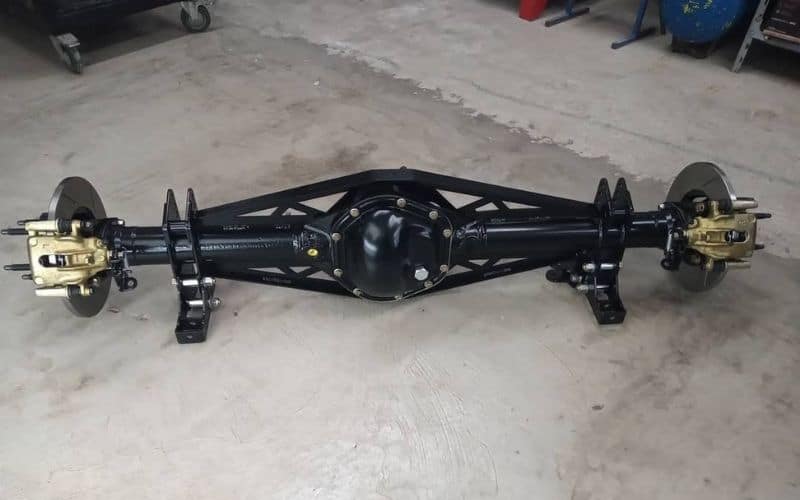
The rear axle of a tow vehicle bears an enormous amount of weight and transfers a significant amount of power when towing.
This makes them a veritable “Weak Link” in the towing chain. A lot of times the manufacturer’s engine, transmission, and suspension systems are capable of towing more, but it is the factory axle that puts a final cap on the towing capabilities.
Talk to your mechanic about what axle upgrades are available for your tow vehicle.
They can help you understand what replacement axles are compatible with and give you a better idea of how much they can increase your towing capacity.
4: Install High Performance Brakes
Like the axles, the vehicle’s brakes are also a potentially limiting factor in the overall towing capacity.
A vehicle’s brakes can only handle so much load. Automotive engineers take that into account when determining what the maximum towing capacity is for a specific vehicle.
Upgrading your vehicle’s rotors, brake pads, and possibly the hydraulic system that connects them to the brake pump can give you greater towing capacity in the end product.
This is the sort of thing that can be done at the same time the axles are being replaced so both can work together.
5: Upgrade The Tow Vehicle’s Suspension System
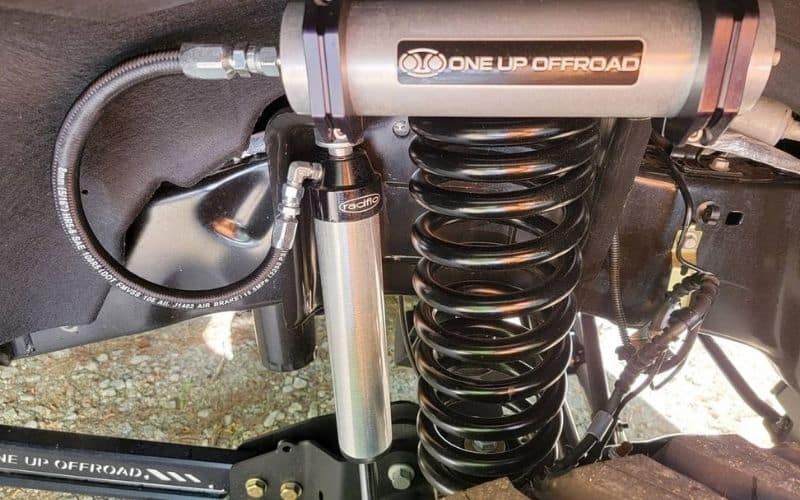
This is a modification that pairs well with upgrading to a weight-distribution hitch. Upgrading your suspension system gives your tow vehicle a higher load capacity.
It also helps increase the rated hitch weight, which can be a factor in helping you tow a heavier trailer.
It also gives you a smoother ride, while also making your tow vehicle better capable of tackling rough terrain.
6: Enhance The Vehicle’s Intake and Exhaust
Enhancing your tow vehicle’s intake and exhaust system helps boost overall engine performance.
When paired with a programmer it lets you get better horsepower and torque when you need it, while also being able to improve overall fuel efficiency.
Changing out to a higher-class air filter is an easy way to start. Though your mechanic can help you understand what other upgrades might be available for your air intake and exhaust system.
7: Making Upgrades To Your Tow Vehicle
It’s important to bear in mind that the upgrades you make to certain systems in your truck can also affect other components.
Taking that into account, you might want to consider making some other upgrades to improve your tow vehicle to ensure that all your upgrades work with the rest of the vehicle’s onboard systems.
Upgrading To A Larger Radiator
The force of towing puts extra strain on a tow vehicle’s engine. This typically generates more heat, which needs to be dissipated efficiently.
Upgrading your vehicle’s radiator will help manage the heat the engine produces to avoid overheating and possible issues with a piston seizing up during a long drive.
The size of the radiator you can upgrade to will be influenced by the available space in the front or sides of the vehicle.
Install A Transmission Radiator
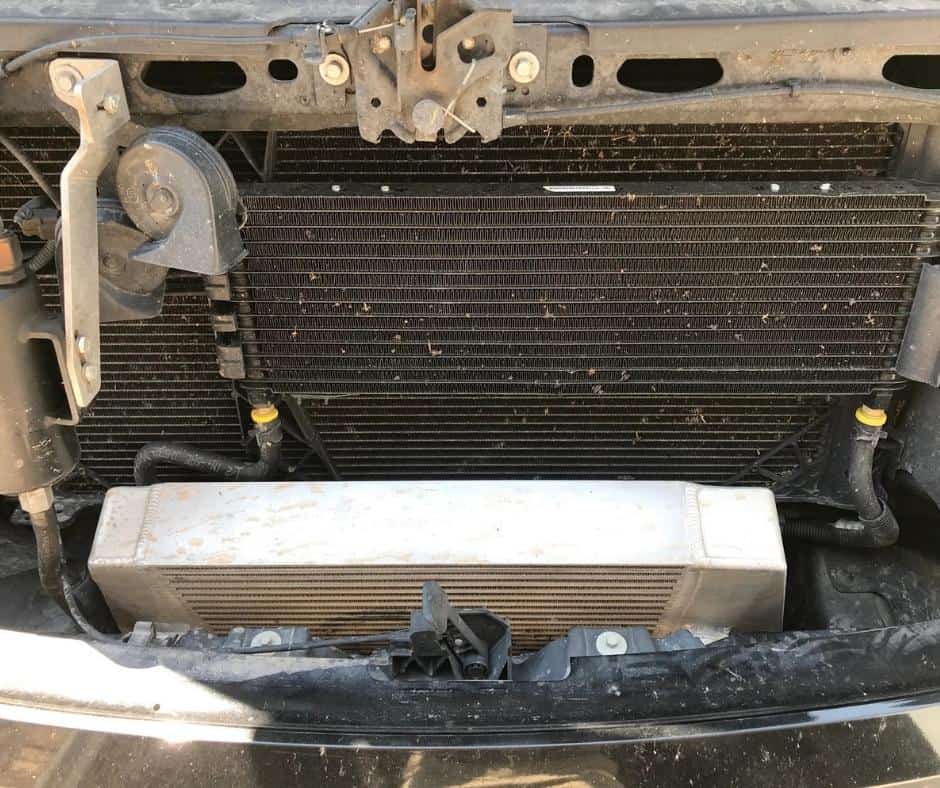
Just like the engine towing puts a lot of strain on a vehicle’s transmission.
Having an aftermarket transmission radiator installed will help keep the tow vehicle running smoothly, and reduce the risk of the kind of hard gear changes that can compound transmission wear and tear when running hot.
Conclusion
There are a few great options to consider for boosting your vehicle’s maximum towing capacity.
Pairing two or more of them together can give you the ability to tow a larger load more safely.
If your mechanic recommends an axle upgrade, you might want to also consider having the braking system upgraded at the same time.
This will translate into greater towing power as well as the ability to safely stop that load when you need it.
If upgrading to a weight-distribution hitch fits your budget, you might want to also see if there are affordable upgrades for the suspension system.
This will let your tow vehicle better distribute the load while ensuring that your tow vehicle has the suspension dynamics to make the most out of it.
If there are air intake and exhaust system upgrades that can significantly improve your tow vehicle’s performance, you might want to also invest in having a programmer installed as part of the process.
This will optimize the power your engine can produce, without completely disregarding fuel efficiency.
While collaborating with your mechanic make sure to also take into account other mechanical things that can be done to improve overall performance for your tow vehicle.
Things like upgrading the radiator, having a transmission radiator installed, and general maintenance can ensure that you are truly making the most of every bit of your vehicle’s towing potential.


